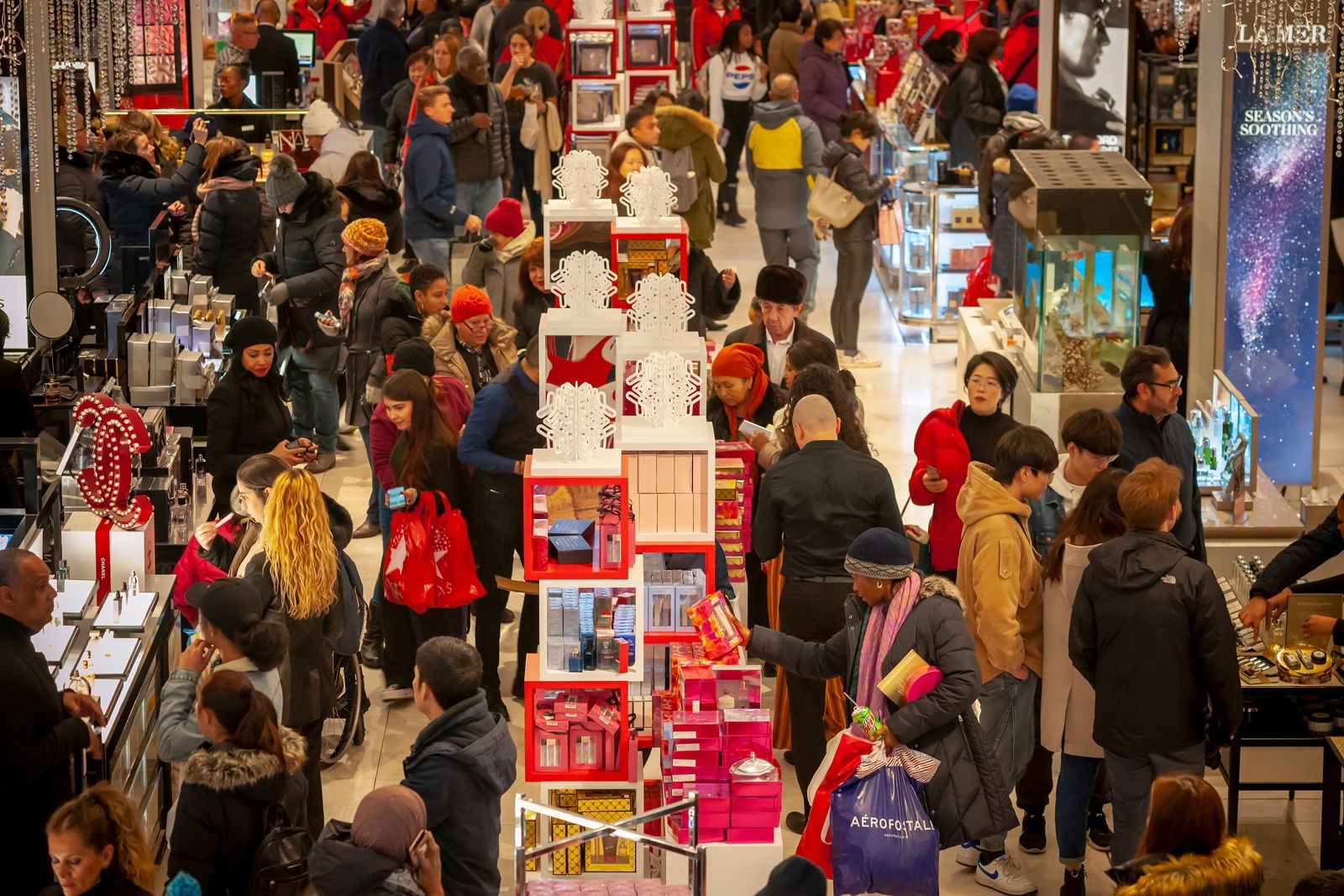Black Friday, the day after Thanksgiving, marks one of the most significant shopping events in the United States. Every year, countless shoppers eagerly anticipate massive discounts and deals offered by retailers, both in-store and online. But have you ever stopped to wonder, why is it called Black Friday? The name itself sounds somewhat ominous, leading many to speculate about its origins. Let’s delve into the real story behind this intriguing moniker and separate fact from fiction.
Debunking the “Red to Black” Profit Myth
A common and widely circulated theory suggests that “Black Friday” got its name from the idea that this is the day when retailers finally start to turn a profit for the year. The narrative goes that businesses operate “in the red” (at a loss) for most of the year until the day after Thanksgiving, when the massive influx of shoppers and sales pushes them “into the black” (profitable). While this sounds like a plausible explanation, especially given the retail context, it is actually a misconception. This “red to black” theory, while catchy, does not hold historical water as the true origin of the term.
 Hordes of shoppers throng the Macy's store in Herald Square, New York City on Black Friday in 2018
Hordes of shoppers throng the Macy's store in Herald Square, New York City on Black Friday in 2018
The Philadelphia Police and the “Black Friday” Chaos
The more accurate and historically supported explanation for why it’s called Black Friday takes us back to the early 1960s in Philadelphia. At this time, the day after Thanksgiving was becoming increasingly popular as the unofficial start to the Christmas shopping season. Suburban tourists flocked to downtown Philadelphia to begin their holiday shopping sprees. Compounding the situation, the annual Army-Navy football game, a major event drawing even more crowds, was often held on the Saturday following Thanksgiving.
This massive convergence of shoppers and football fans created utter chaos in the city. Philadelphia police officers found themselves grappling with gridlocked traffic, a surge in accidents, increased shoplifting, and general disorder. Overwhelmed and facing extended shifts to manage the mayhem, these officers began to sarcastically refer to the day after Thanksgiving as “Black Friday” – not because businesses were turning a profit, but because it was a dark and difficult day for them.
“Big Friday” – A Failed Rebranding Attempt
As the term “Black Friday” started to gain traction within Philadelphia, local merchants, understandably concerned about the negative connotations of the name, attempted to rebrand it. They tried to promote the day as “Big Friday” in an effort to give it a more positive and consumer-friendly image. However, this attempt at rebranding ultimately failed to take hold, and “Black Friday,” with its slightly ominous undertones, remained the name associated with the post-Thanksgiving shopping frenzy.
Nationwide Adoption and the Profit Narrative
Despite its origins rooted in police frustration, the term “Black Friday” eventually spread beyond Philadelphia and became nationally recognized in the late 1980s. Interestingly, it was around this time that the “red to black” profit narrative began to gain popularity. Retailers, perhaps seeing an opportunity to spin the name in a positive light for business, started promoting this profit-related explanation. They emphasized Black Friday as the day stores moved into profitability for the year and positioned it as the biggest shopping day in the United States. However, historically, data suggests that for many years, the Saturday before Christmas actually saw the largest retail sales.
Black Friday and Other Shopping Holidays
Black Friday’s immense popularity has paved the way for other shopping-related holidays. Small Business Saturday was created to encourage consumers to support local retailers. Cyber Monday emerged as its online counterpart, promoting e-commerce deals. Giving Tuesday has also risen in prominence, focusing on charitable giving and donations in the wake of the shopping rush.
The Original “Black Friday” – A Financial Panic
Interestingly, the term “Black Friday” has an even earlier, and far more negative, historical association, unrelated to shopping. In 1869, “Black Friday” referred to a catastrophic financial event. Wall Street financiers Jay Gould and James Fisk attempted to corner the gold market, driving prices up artificially. However, their scheme unraveled on Friday, September 24, 1869, when government intervention caused the gold market to crash. This “Black Friday” of 1869 resulted in a stock market plunge and widespread bankruptcies, leaving a dark mark on financial history.
In conclusion, while the “red to black” profit myth offers a convenient explanation for why it’s called Black Friday, the true origin lies in the chaotic scenes faced by Philadelphia police in the 1960s. The name, born out of frustration and disorder, ironically became synonymous with the biggest shopping day of the year, evolving over time and even overshadowing an earlier, darker “Black Friday” in financial history. Understanding the real story behind the name adds an intriguing layer to this now-iconic shopping phenomenon.